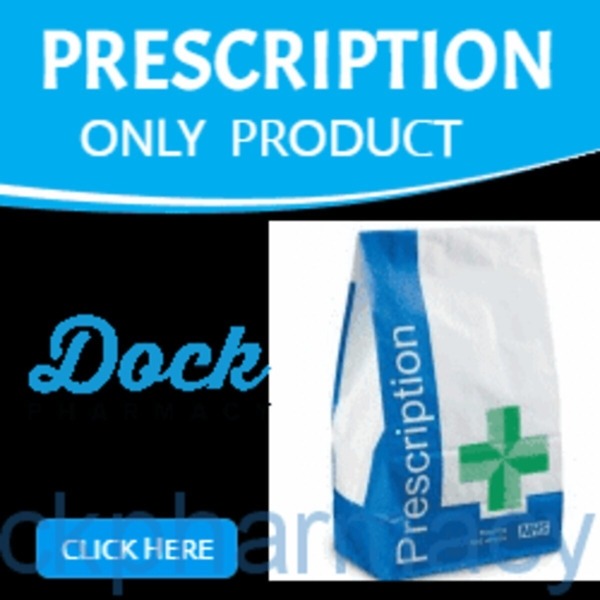- Description
- Additional Information
- Brand
- How To Use
- Product Details
- Side Effects
- Ingredients
- Reviews (0)
- Questions & Answers
Alendronic Acid 10mg Tablets, 28 Tablets
What is Alendronic acid?
Alendronic acid is a tablet containing the active substance alendronic acid (commonly called alendronate) and belongs to a group of medicines called bisphosphonates. Alendronic Acid prevents the loss of bone that occurs in women after they
have been through the menopause. It can also prevent loss of bone in men or people taking steroids, such as prednisolone
and methylprednisolone.. It also has been shown to help rebuild bone and makes bone and reduce the risk of spine and hip fractures (broken bones) in women (after their menopause) and in men who have thinning of their bones (osteoporosis).
What is Alendronic Acid Tablets are used for?
Your doctor has prescribed Alendronic Acid 10mg Tablets because you either have osteoporosis or you are at risk of developing this disease.
What is osteoporosis?
Osteoporosis is a thinning and weakening of the bones. It is common in women after the menopause. At the menopause, the ovaries stop producing the female hormone, oestrogen, which helps to keep a woman’s skeleton healthy. As a result, bone loss occurs and bones become weaker. The earlier a woman reaches the menopause, the greater the risk of osteoporosis.
Osteoporosis can also occur in men due to a number of causes including ageing and/or a low level of the male hormone,
testosterone. In all instances, bone is removed faster than it is formed, so bone loss occurs and bones become weaker.
Corticosteroids can also cause bone loss and osteoporosis in both men and women.
Early on, osteoporosis usually has no symptoms. If left untreated, however, it can result in broken bones. Although these
usually hurt, breaks in the bones of the spine may go unnoticed until they cause height loss.
| Brand | |
|---|---|
Brand
FOSAMAX
How To Use
Always take alendronic acid tablets exactly as your doctor has told you. You should check with your doctor or pharmacist
if you are not sure.
Taking your medicine
It is very important that you follow actions 1 to 5 help the tablet reach your stomach quickly and help reduce possible
irritation of your oesophagus (the tube that connects your mouth with your stomach).
1. After getting up for the day, and before taking any food, drink or other medicines, swallow your alendronic acid
tablets with a full glass of plain water only (not less than 200 ml).
− Do not take with mineral water (still or sparkling)
− Do not take with coffee or tea
− Do not take with juice or milk
– Do not crush or chew the tablet or allow it to dissolve in your mouth.
2. Do not lie down – stay fully upright (sitting, standing or walking) for at least 30 minutes after swallowing the
tablet. Do not lie down until after your first food of the day.
3. Do not take alendronic acid tablets at bedtime or before getting up for the day.
4. If you develop difficulty or pain upon swallowing, chest pain, or new or worsening heartburn, stop taking
alendronic acid tablets and talk to your doctor immediately.
5. After swallowing your tablet, wait at least 30 minutes before taking your first food, drink, or other medicine of the
day, including antacids, calcium supplements and vitamins. Alendronic Acid Tablets will only work if your
stomach is empty.
The recommended dose
for the treatment of osteoporosis in men or post-menopausal women the recommended dose is 10 mg once a day.
for the treatment prevention of steroid induced osteoporosis in post-menopausal women not receiving hormone
replacement therapy (HRT) with an oestrogen the recommended dose is 10 mg once a day.
Product Details
Do not take Alendronic Acid Tablets if you:
are allergic to alendronic acid, the active ingredient, or any of the other ingredients of this medicine (listed in
section6)
have certain disorders of the oesophagus (sometimes called the gullet and is the tube that connects your mouth with
your stomach) such as narrowing or difficulty swallowing
cannot stand or sit upright for at least 30 minutes
your doctor has told you that you have low blood calcium
If you think any of these apply to you, do not take the tablets. Talk to your doctor first and follow the advice given.
Warnings and precautions
Talk to your doctor or pharmacist before taking Alendronic acid tablets
It is important to tell your doctor before taking Alendronic Acid Tablets if
yousuffer from kidney problems
you have any swallowing or digestive problems
your doctor has told you that you have Barrett’s oesophagus (a condition associated with changes in the cells that
line the lower oesophagus)
you have been told you have low blood calcium
you have poor dental health, gum disease, a planned extraction or you don’t receive routine dental care
you have cancer
you are undergoing chemotherapy or radiotherapy
you are taking angiogenesis inhibitors (such as bevacizumab, or thalidomide)
you are taking corticosteroids (such as prednisone or dexamethasone)
you are or have been a smoker (as this may increase the risk of dental problems).
You may be advised to have a dental check-up before starting treatment with Alendronic acid.
It is important to maintain good oral hygiene when being treated with Alendronic acid tablets. You should have
routine dental check-ups throughout your treatment and you should contact your doctor or dentist if
you experience any problems with your mouth or teeth such as loose teeth, pain or swelling.
Irritation, inflammation or ulceration of the gullet (oesophagus – the tube that connects your mouth with your stomach)
often with symptoms of chest pain, heartburn, or difficulty or pain upon swallowing may occur, especially if patients do not
drink a full glass of water and/or if they lie down less than 30 minutes after taking alendronic acid tablets. These side
effects may worsen if patients continue to take alendronic acid tablets after developing these symptoms.
Children and adolescents
Alendronic acid tablets should not be given to children and adolescents less than 18 years of age.
Other medicines and Alendronic acid Tablets
Tell your doctor or pharmacist if you are taking, have recently taken or might take any other medicines.
It is likely that calcium supplements, antacids, and some oral medicines will interfere with the absorption of Alendronic
acid tablets if taken at the same time. Therefore, it is important that you follow the advice given in section 3 How to take
Alendronic acid Tablets.
Certain medicines for rheumatism or long-term pain called NSAIDs (e.g. acetylsalicyclic acid (aspirin) or ibuprofen) might
cause digestive problems. Therefore, caution should be used when these medicines are taken at the same time as
Alendronic acid Tablets.
Alendronic Acid Tablets with food and drink
It is likely that food and drinks (including mineral water) will make Alendronic acid Tablets less effective if taken at the
same time. Therefore it is important that you follow the advice given in Section 3 How to take Alendronic acid Tablets.
Pregnancy, breast-feeding and fertility
Alendronic acid tablet is only intended for use in postmenopausal women. You should not take alendronic acid tablets if
you are pregnant or breast-feeding, think you may be pregnant or are planning to have a baby, ask your doctor or
pharmacist for advice before taking this medicine
Driving and using machines
There have been side effects (including blurred vision, dizziness and severe bone, muscle or joint pain) reported with
alendronic acid tablets that may affect your ability to drive or operate machinery. Individual responses to alendronic acid
tablets may vary (See section4.)
Alendronic Acid Tablets contains lactose
If you have been told by your doctor that you have intolerance to some sugars, contact your doctor before taking this
medicine
Side Effects
Like all medicines, alendronic acid tablets can cause side effects, although not everybody gets them.
See your doctor immediately if you notice any of the following side effects, which may be serious, and for which you may
need urgent medical treatment:
Common (may affect up to 1 in 10 people):
Heartburn; difficulty swallowing; pain upon swallowing; ulceration of the gullet (oesophagus – the tube that
connects your mouth with your stomach) which can cause chest pain, heartburn or difficulty or pain upon
swallowing.
Rare (may affect up to 1 in 1,000 people):
Allergic reactions such as hives; swelling of the face, lips, tongue and/or throat, possibly causing difficulty
breathing or swallowing; severe reactions involving your skin, mucous membranes of your mouth, nose eyes or
genitals. Stop taking this medicine and contact your doctor right away if you experience such symptoms;
Pain in the mouth, and/or jaw, swelling or sores inside the mouth, numbness or a feeling of heaviness in the jaw, or
loosening of a tooth. These could be signs of bone damage in the jaw (osteonecrosis) generally associated with
delayed healing and infection, often following tooth extraction. Contact your doctor and dentist if you experience
such symptoms;
unusual fracture of the thigh bone particularly in patients on long-term treatment for osteoporosis may occur rarely.
Contact your doctor if you experience pain, weakness or discomfort in your thigh, hip or groin as this may be an
early indication of a possible fracture of the thigh bone;
bone, muscle and/or joint pain which is severe.
Other side effects include:
Very common (may affect more than 1 in 10 people):
Bone, muscle and/or joint which is sometimes severe.
Common (may affect more than 1 in 10 people):
joint swelling
abdominal pain; uncomfortable feeling in the stomach or belching after eating; constipation; full or bloated feeling
in the stomach; diarrhoea; flatulence;
hair loss; itching;
headache; dizziness;
tiredness; swelling in the hands or legs.
Uncommon (may affect up to 1 in 100 people):
nausea;
vomiting
irritation or inflammation of the gullet (oesophagus – the tube that connects your mouth with your stomach) or
stomach
black or tar-like stools
blurred vision; pain or redness in the eye;
rash;
redness of the skin
transient flu-like symptoms, such as aching muscles, generally feeling unwell and sometimes with fever usually at
the start of treatment;
taste disturbance.
Rare (may affect up to 1 in 1000 people):
symptoms of low blood calcium levels including muscle cramps or spasms and/or tingling sensation in the fingers
or around the mouth
stomach or peptic ulcers (sometimes severe or with bleeding)
narrowing of the gullet (oesophagus – the tube that connects your mouth with your stomach)
rash made worse by sunlight
mouth ulcers when the tablets have been chewed or sucked
Very rare (may affect up to 1 in 10,000 people):
Talk to your doctor if you have ear pain, discharge from the ear, and/or an ear infection. These could be signs of
bone damage in the ear.
Reporting of side effects
If you get any side effects, talk to your doctor, pharmacist or nurse. This includes any possible side effects not listed in this
leaflet. You can also report side effects directly via Yellow Card Scheme at: www.mhra.gov.uk/yellowcard. By reporting
side effets you can help provide more information on the safety of this medicine
Ingredients
What Alendronic Acid Tablets contain:
The active substance is alendronic acid (as sodium alendronate).
Each tablet contains 10mg alendronic acid (as alendronate sodium)
The other ingredients are lactose anhydrous, cellulose microcrystalline (E460), croscarmellose sodium and magnesium
stearate.
Only logged in customers who have purchased this product may leave a review.
Questions and answers of the customers
There are no questions yet, be the first to ask something for this product.
Other Products From This Seller
Original price was: £63.00.£15.95Current price is: £15.95.
Dunhill Icon Racing Green Eau de Parfum Sprays, 100ml Embrace the thrill of sophistication with Dunhill Icon Racing Green Eau de Parfum, 100ml, a fresh and woody fragrance for men inspired by the spirit of speed and elegance. This luxurious scent from Dunhill blends invigorating citrus top notes with a warm woody base, making it […]
Learn MoreOriginal price was: £63.00.£15.95Current price is: £15.95.
- Availability: in stock
Original price was: £45.00.£18.95Current price is: £18.95.
Guy Laroche Drakkar Noir Eau de Toilette Spray, 100ml Bold and Aromatic Men’s Fragrance Exude timeless masculinity with Guy Laroche Drakkar Noir Eau de Toilette Spray, 100ml, an iconic men’s fragrance that blends boldness and sophistication. Launched by Guy Laroche, this classic scent remains a favorite for men seeking a powerful and confident aroma. Drakkar […]
Learn MoreOriginal price was: £45.00.£18.95Current price is: £18.95.
- Availability: in stock
Original price was: £49.00.£24.95Current price is: £24.95.
Dunhill Desire Blue for Men Eau de Toilette, 100 ml Dive into elegance and freshness with Dunhill Desire Blue for Men Eau de Toilette, 100ml, a fresh and aquatic fragrance that embodies sophistication and charm. Crafted for the modern man, this invigorating scent blends crisp citrus, aromatic herbs, and warm woody undertones to create a […]
Learn MoreOriginal price was: £49.00.£24.95Current price is: £24.95.
- Availability: in stock
Original price was: £33.95.£14.95Current price is: £14.95.
David Beckham Classic Eau de Toilette 90ml Sophisticated and Woody Fragrance for Men Step into timeless sophistication with David Beckham Classic Eau de Toilette, 90ml, a woody and citrus fragrance for men that exudes confidence and style. Designed for the modern gentleman, this iconic scent captures the elegance and charisma synonymous with David Beckham. Whether […]
Learn MoreOriginal price was: £33.95.£14.95Current price is: £14.95.
- Availability: in stock
Original price was: £40.00.£19.99Current price is: £19.99.
ARMAF Club De Nuit Intense Man Eau De Parfum, 30ml Bold and Long-Lasting Fragrance for Men Elevate your presence with ARMAF Club De Nuit Intense Man Eau De Parfum, 30ml, a bold and woody fragrance for men that exudes sophistication and confidence. Crafted for the modern gentleman, this luxurious scent combines fresh citrus, aromatic spices, […]
Learn MoreOriginal price was: £40.00.£19.99Current price is: £19.99.
- Availability: in stock
Original price was: £35.00.£18.95Current price is: £18.95.
Calvin Klein CK IN2U Him Eau De Toilette 50ml Fresh, Spicy, and Woody Fragrance Celebrate youth, energy, and spontaneity with Calvin Klein CK IN2U Him Eau De Toilette, 50ml, a fresh and spicy fragrance for men. This dynamic scent perfectly balances invigorating citrus top notes with warm woody undertones, embodying the spirit of modern masculinity. […]
Learn MoreOriginal price was: £35.00.£18.95Current price is: £18.95.
- Availability: in stock
Original price was: £66.00.£19.95Current price is: £19.95.
Calvin Klein Man Eau de Toilette 100ml Fresh, Bold, and Woody Fragrance for Men Define your masculinity with Calvin Klein Man Eau de Toilette, 100ml, a fresh and woody fragrance for men that embodies confidence, sophistication, and modernity. This bold scent blends crisp and spicy notes with warm undertones, making it an ideal choice for […]
Learn MoreOriginal price was: £66.00.£19.95Current price is: £19.95.
- Availability: in stock
Original price was: £38.00.£22.99Current price is: £22.99.
BURBERRY Weekend For Men Edt Spray, 30 ml Fresh and Casual Fragrance Relax in style with BURBERRY Weekend For Men Eau de Toilette Spray, 30ml, a fresh and citrusy fragrance for men that perfectly embodies casual elegance. Designed for modern, relaxed men, this scent balances refreshing citrus top notes with warm, woody undertones. Ideal for […]
Learn MoreOriginal price was: £38.00.£22.99Current price is: £22.99.
- Availability: in stock
Original price was: £36.00.£24.95Current price is: £24.95.
BURBERRY Touch For Men Eau de Toilette 30ml Fresh and Woody Fragrance Experience the refined elegance of BURBERRY Touch For Men Eau de Toilette, 30ml, a fresh and woody fragrance for men that captures the essence of modern masculinity. Perfectly balanced with refreshing and warm notes, this iconic scent is ideal for everyday wear and […]
Learn MoreOriginal price was: £36.00.£24.95Current price is: £24.95.
- Availability: in stock
Original price was: £9.95.£4.95Current price is: £4.95.
Aqua Man DC Pour Homme Eau De Parfum 100ml Bold and Fresh Aquatic Fragrance for Men Unleash your inner hero with Aqua Man DC Pour Homme Eau De Parfum, 100ml, a fresh and aquatic fragrance for men that embodies strength, confidence, and charisma. Inspired by the iconic DC superhero Aqua Man, this invigorating scent is […]
Learn MoreOriginal price was: £9.95.£4.95Current price is: £4.95.
- Availability: in stock
















Reviews
There are no reviews yet